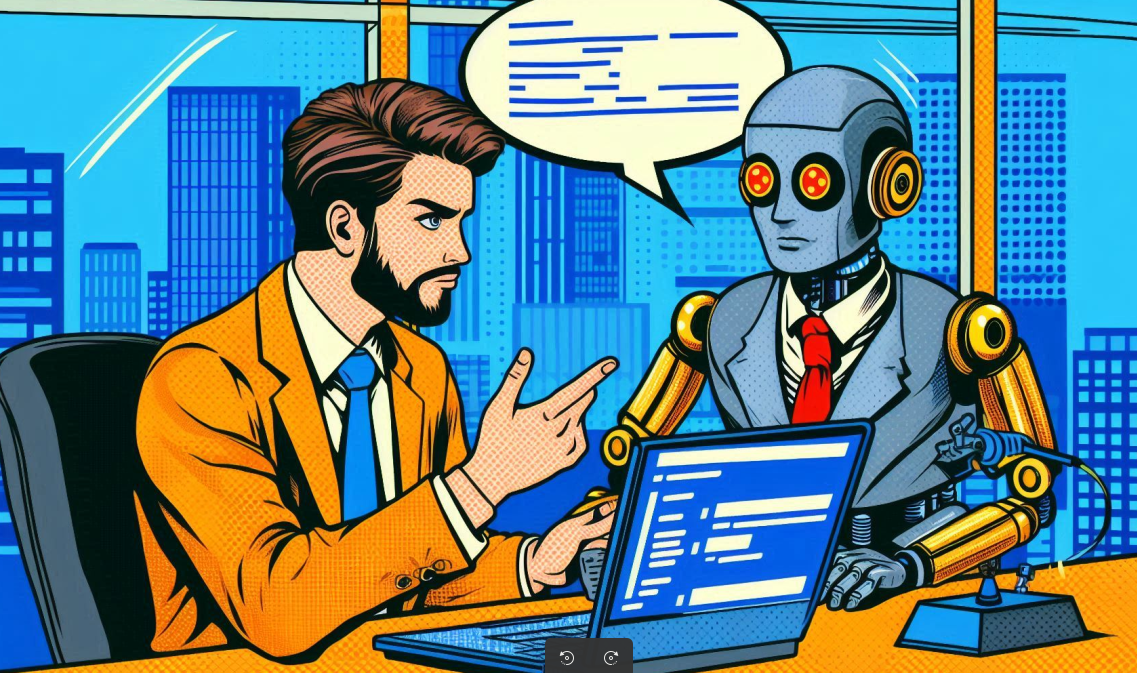 AI
AI
 AI
AI
 AI
AI
Low-code application development startup OutSystems Inc. says it’s looking to transform the entire software development lifecycle with the debut of a new, generative artificial intelligence-powered “digital worker” called Mentor.
Available in early access starting today, Mentor is meant to help companies with the entire process of creating new software, aiding application generation, delivery and monitoring via a low-code, generative AI experience.
The company unveiled the new integration in its platform during its annual OutSystems One conference today, where founder and Chief Executive Paulo Rosado talked about how the combination of low-code and generative AI can streamline the entire software development and management workflow.
Mentor, he said, provides capabilities including AI-driven app generation, optimization and automated quality checks in a single, easy-to-use interface, with everything falling under centralized governance. The aim is to accelerate the productivity of developer teams to unprecedented speeds, while ensuring that new applications continue to meet the highest quality standards, he added.
The great thing about Mentor is it can participate in every step of the app development lifecycle, beginning with ideation and prototyping, enabling teams to validate their new ideas and refine their initial designs before proceeding with full-scale development. To get started, users simply describe the app they want to build, or simply tell Mentor what their vision is, using natural language. Mentor will then whip up a concept of that app complete with a front-end so users can explore how it works. The initial prototype will feature both data models and embedded business logic so it can be thoroughly tested.
Once the user has explored the initial concept, they’ll be able to ask Mentor to refine it in various ways. In addition, Mentor will also pipe in with its own suggestions on how to improve the app’s functionality. Further, it can even embed “AI agents” within the app to automate tasks on behalf of users.
Mentor will then aid in the deployment and ongoing maintenance and management of the newly created app, performing AI-powered code reviews to ensure it meets the customer’s standards in terms of performance, security, long-term maintainability and architecture.
Rosado said a recent study carried out by OutSystems reveals that 93% of company executives want to increase their investments in AI-powered software development. That underscores a widespread belief in generative AI’s enormous potential to increase developer productivity, he added.
“The Generative Software Cycle is here, but speed can lead to technical debt and security issues if not managed carefully,” Rosado said. “With OutSystems Mentor, developers can build full-stack applications in minutes without sacrificing quality, security or governance. Mentor ensures apps are built right from the start.”
Rosado stressed that Mentor is able to overcome many of the challenges associated with AI-generated software, such as orphaned code, poor quality code and a lack of transparency or explainability. When it becomes generally available next year, it will also provide tools that make it simple to secure and control access to AI models, AI agents and confidential data, to help safeguard privacy.
Constellation Research Inc. analyst Holger Mueller said OutSystems’ Mentor is an early example of how AI is going beyond the realm of automating single business tasks with copilots, to take over much more complex processes.
“Software development is an extremely complex process, looking to eliminate much of the friction that occurs when new software is defined, created, tested, documented and maintained,” the analyst said. “It will be interesting to see Mentor in action. If it can propel developer velocity and reduce the time-to-go-live metric in software development processes, it can be an extremely useful tool in today’s software-powered economy.”
Diego Lo Giudice, an analyst at Forrester Research Inc., said the classic software development lifecycle has always been broken down into separate, specialized roles and steps focused on ideation, analysis, design and development. But with AI, he believes, everything can be combined into a single workflow.
“AI can and will combine these tasks into a frictionless creative act,” Lo Giudice said.
Support our mission to keep content open and free by engaging with theCUBE community. Join theCUBE’s Alumni Trust Network, where technology leaders connect, share intelligence and create opportunities.
Founded by tech visionaries John Furrier and Dave Vellante, SiliconANGLE Media has built a dynamic ecosystem of industry-leading digital media brands that reach 15+ million elite tech professionals. Our new proprietary theCUBE AI Video Cloud is breaking ground in audience interaction, leveraging theCUBEai.com neural network to help technology companies make data-driven decisions and stay at the forefront of industry conversations.